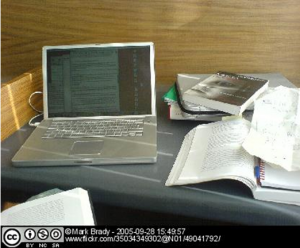 A couple of weeks ago we had an internal conference at the Open University on ‘Developing good academic practice’. Day 1 was intended for our tutors and their line-managers (staff tutors); Day 2 for module team members and those with the assessment overview in faculties. That means I went both days! Each day, we had a ‘keynote’ presentation, then a series of workshops run by different ‘Faculty Academic Conduct Officers’.
A couple of weeks ago we had an internal conference at the Open University on ‘Developing good academic practice’. Day 1 was intended for our tutors and their line-managers (staff tutors); Day 2 for module team members and those with the assessment overview in faculties. That means I went both days! Each day, we had a ‘keynote’ presentation, then a series of workshops run by different ‘Faculty Academic Conduct Officers’.
Carol Bailey from the University of Wolverhampton gave an inspirational keynote, about the issues confronting international students when producing essays etc. to our (UK) standards. It is salutory to remember just how little shared experience we have with these students and how challenging it can be for them to produce written work to our standards – though Carol ended with a lovely story from a student who had improved beyond his or her wildest dreams.
That brings me to what, for me, was the over-riding message from the conference: we have so little shared understanding with many of our students (not just international ones) of the purpose and nature of assessment. I don’t mean just in subtle, minor ways – many of our students don’t know why they are doing our assignments (and do we?), so is it surprising that they do things we don’t want them to do, like plagiarising? Let’s start making our expectations clear to our students and attempting to engage them in dialogue, before as well as after our assignments. Let’s make that the focus, rather than seeking to ‘get them’ when they have copied something from the web without proper referencing. Yes, we need to explain to students that this is wrong, but we also need to make sure that they know how to do better.
Carol also introduced me to Xpert, so this blog will now contain lots of images with Creative Commons attributions!

Pingback: e-assessment (f)or learning » Blog Archive » Automatic marking of essays